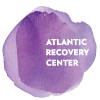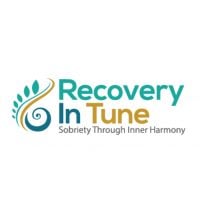Family Institute
Drug Rehab Center in Fort Lauderdale, Florida
The Family Institute in Florida is a great addiction treatment facility with a variety of options and experienced, compassionate staff.
Multiple patients have reported Family Institute as permanently closed.
Research other rehabs in Fort Lauderdale, Florida, or get help finding an open facility.
About Family Institute in Florida
Family Institute is an Addiction Treatment Facility located in Fort Lauderdale, FL, dedicated to helping individuals struggling with addiction find the path to sobriety. They offer a range of comprehensive programs and services designed to address various substance abuse issues, including alcoholism, dual diagnosis, opioid addiction, and drug addiction. With a team of experienced and compassionate professionals, Family Institute aims to provide personalized treatment plans tailored to each individual's unique needs and circumstances. Whether someone is seeking help for themselves or a loved one, Family Institute offers a supportive and nurturing environment to facilitate healing and recovery.
At Family Institute, individuals can expect to receive top-quality care and a wide range of treatment services to aid in their journey towards sobriety. The facility offers aftercare support, ensuring that individuals have the necessary resources and guidance even after completing a treatment program. They also provide drug rehab services, offering a structured and supportive environment for individuals to detoxify and overcome their addiction. With outpatient levels of care available, Family Institute aims to make treatment accessible for those who may have work or family commitments that prevent them from joining a residential program. The center utilizes evidence-based treatment methods combined with holistic approaches, giving individuals a comprehensive toolkit to address the underlying causes of addiction and develop healthy coping mechanisms. Family Institute is committed to guiding individuals towards lasting recovery, empowering them to reclaim their lives and build a foundation for a brighter future.
Genders
Ages
Modality
Additional
Conditions and Issues Treated
Opioid addiction is when someone becomes addicted to opioids. This can happen quickly due to any opioid use. Opioid withdrawal can be uncomfortable and lead the user to continue using even if they want to quit. It’s best to receive inpatient treatment for detoxification.
Even if a person doesn’t need inpatient treatment, it’s recommended to start rehabilitation or at least some kind of outpatient treatment. This is because the withdrawal symptoms from opioids can be uncomfortable and unpleasant, to the point that a person could end up using again or worse.
Detoxification should be done to break the physical addiction of opioids. This can be done with opioid replacement therapy, medication-assisted therapy, or a more traditional detoxification program. Intensive outpatient treatment is a form of addiction care that allows patients to continue living at home while undergoing treatment. This type of care is appropriate for patients who have been treated in residential treatment programs. Intensive outpatient programs include regular visits to the facility providing therapy, and patients gradually return to their routine life. IOP benefits most when patients have a supportive family member or friend to help them recover.
The first step to getting into an intensive outpatient program is to attend a detoxification facility. Detoxification facilities are designed to remove substances from the body safely. The patient will attend sessions designed to help them understand their addiction and its impact on their lives. While in an intensive outpatient program, therapy sessions are scheduled three to five times per week, with the patient attending no more than two sessions in one day.
Levels of Care Offered
This center offers a variety of custom treatment tailored to individual recovery. Currently available are Aftercare Support, Drug Rehab, Outpatient, with additional therapies available as listed below.
Outpatient treatment consists of counseling and therapy sessions. The outpatient treatment process begins with the addict’s initial detox period, lasting about ten days. Outpatient treatment is used for those who are at moderate risk for “slipping back” into the addiction. It is also used for those who are not currently experiencing any side effects from withdrawal, can handle social pressure, have a stable living environment, and have a good support system.
Aftercare support is often overlooked in the treatment of drug and alcohol addiction. However, it’s an essential part and should be considered when planning a course of rehab.
Aftercare is a term that’s used to refer to any sort of continuing care offered for a drug addict who has voluntarily entered a rehabilitation program. This type of care can be provided in several settings, including outpatient therapy sessions after the addict has completed an inpatient program. There are also 12-step support groups, such as Alcoholics Anonymous, which can provide additional help for addicts trying to stay sober.
Aftercare is vital because addicts often face many challenges as they attempt to recover from drug addiction or alcoholism. Because of the powerful nature of these addictions, those who struggle with a drug or alcohol problem will likely have to face the craving for their substance of choice for the rest of their lives. Recovering can be a lonely and frustrating endeavor, especially without the support of others who are going through similar situations.
Therapies & Programs
Addiction can take a heavy toll on relationships, damage the trust and intimacy that was once there. Couples therapy at Family Institute helps to rebuild the trust and intimacy that has been damaged. An intimate relationship with a drug addict is not healthy for children or anyone in the family. Therapist help to rebalance family roles and create a healthier environment after rehab in Fort Lauderdale, FL.
Family therapy is a crucial part of drug treatment and getting sober. It is one of the most effective ways to help addicts stay on the path to long-term sobriety. One of the most important parts of family therapy is the relapse prevention plan. During treatment, therapists and doctors will often sit down with the addict and their family to develop a plan if the addict ever feels like they want to use again. This plan should involve steps the addict and family can take together to prevent them from relapsing in the future.
An addict’s family can play a vital part in helping them to avoid relapse because they can spot the warning signs and help them get back on track before it becomes too much of a problem. Family therapy is one of the most effective ways to help addicts stay on the path to long-term sobriety.
Group Therapy is employed by drug treatment centers like Family Institute to provide the recovering addict with a platform to talk about their feelings and experiences. It also provides for an opportunity to learn from other addicts who have successfully overcome their addiction. It is recommended that all group members be recovering addicts for this type of therapy to work.
Additional Details
Specifics, location, and helpful extra information.
Fort Lauderdale, Florida 33325 Phone Number(954) 370-0200 Meta DetailsUpdated November 25, 2023
Staff Verified
Family Institute Patient Reviews
There are no reviews yet. Be the first one to write one.
Fort Lauderdale, Florida Addiction Information
Florida is one of the nation's epicenters for substance abuse and drug-related overdoses. In 2014, around 410,000 Florida residents were addicted to drugs and alcohol. Over the last 10 years, 12% of all deaths in the state were attributed to substance abuse. Treatment admissions for alcohol reached 24,329 patients in 2016, and 2.5% of Florida high school students admitted to using crack cocaine.
In 2017, there were 200 deaths due to drug overdoses in Broward County, including Fort Lauderdale. This was a significant increase from the 155 deaths that occurred in 2016. Approximately 21% of people aged 12 or older with an AUD also had a SUD. Drug addiction is a severe problem that can lead to crime, violence, and other social issues.
Treatment in Nearby Cities
- Maitland, FL (184.8 mi.)
- Coral Gables, FL (25.7 mi.)
- Tavares, FL (204.5 mi.)
- Ormond Beach, FL (223.7 mi.)
- Oviedo, FL (184.6 mi.)
Centers near Family Institute
The facility name, logo and brand are the property and registered trademarks of Family Institute, and are being used for identification and informational purposes only. Use of these names, logos and brands shall not imply endorsement. RehabNow.org is not affiliated with or sponsored by Family Institute.








